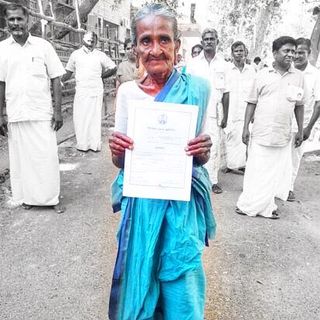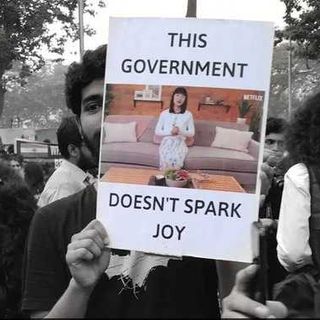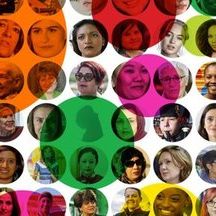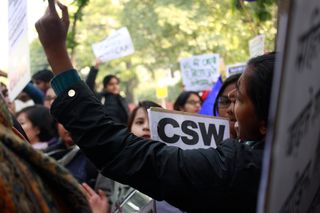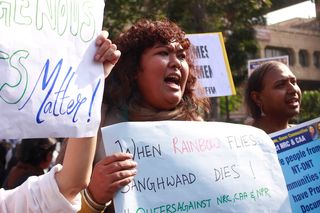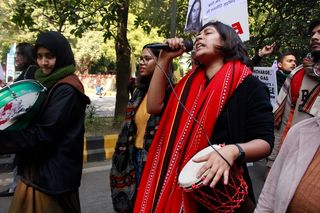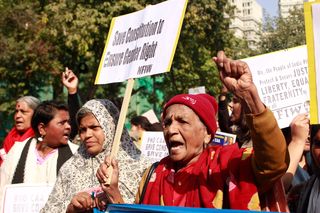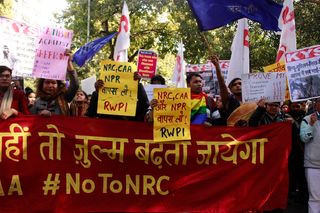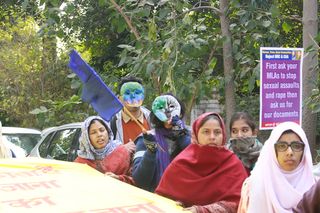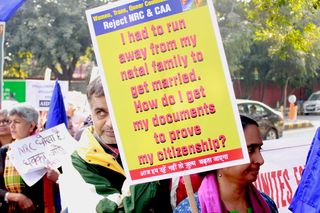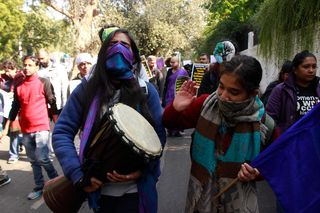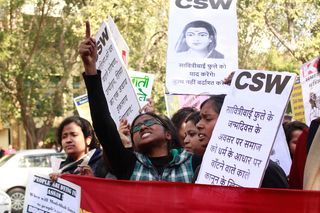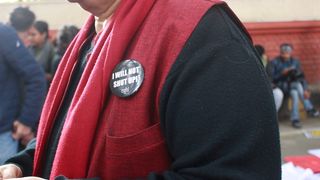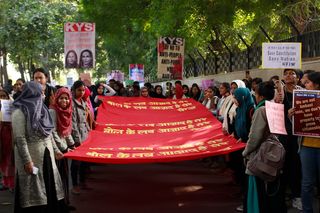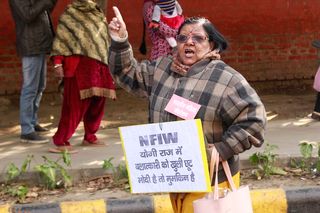On Jan. 3 — the anniversary of Indian social reformer and educationalist Savitribai Phule — women and queer protesters took to the streets across India to denounce the National Register of Citizens — an exercise that will require Indian citizens to prove their or their family’s citizenship going as far back as 1971 through documents — and the Citizenship Amendment Act (CAA) — a recent law that, in effect, bans Muslim migrants from neighboring Islamic countries such as Pakistan, Bangladesh, and Afghanistan. While the dominating rhetoric of oppression across the country is the NRC-CAA poses a threat of disenfranchisement to India’s 200 million Muslims, women and queer activists have attempted to draw attention to how the NRC-CAA will also affect various other minority groups in India, such as transgender individuals and sex workers, including disadvantaged groups such as women.
“We the people elect our government; the government doesn’t get to select who belongs to India,” secretary of the All India Progressive Women’s Association, Kavita Krishnan said at the New Delhi protest. “Today is Savitribai Phule’s birth anniversary. We know if she had not fought the bigots of her day, we would not have been educated today. We have to fight today, so we can win tomorrow. It’s a personal fight for every person in India.”
Carefully surveilled and video recordedby numerous police officers around, hundreds of women, queer people and allies marched from Mandi House to Jantar Mantar in New Delhi, unabashedly loud and defiant.
A protester leads the chant of “Azaadi” at a Delhi protest led by women and queer activists on Jan. 3, 2019. (Image Credit: Rajvi Desai)
A protester calls for the government to put resources into education, instead of the National Register of Citizens, during a protest led by women and queer activists in Delhi on educationalist Savitribai Phule’s birth anniversary on Jan. 3, 2019. (Image Credit: Rajvi Desai)
Rituparna Bohra, 38, an LGBTQIA+ activistchants during a protest led by women and queer activists in Delhi on Jan. 3, 2019. (Image Credit: Rajvi Desai)
“I’m here to show the world that women and queer folks can lead and raise voices against fascism and patriarchy, because it impacts them the most,” Rituparna Bohra, 38, an LGBTQIA+ activist, said, adding she sees a strong link between fascism, toxic masculinity, and the patriarchy. “We don’t want men to tell us what is affecting us.”
Bohra, who identifies as lesbian, said many queer people face persecution in other countries because of their sexuality and gender. “There is too much emphasis on proving linkages to families. We can make our own families. Can’t I prove my partner is my family?”
Protesters sing and bang on drums during a protest led by women and queer activists in Delhi on Jan. 3, 2019. (Image Credit: Rajvi Desai)
Philomena John, 78, pumps her fist during a protest led by women and queer activists in Delhi on Jan. 3, 2019. (Image Credit: Rajvi Desai)
Philomena John, 78, a member of the National Federation of Indian Women, stressed on the unity of the Indian people. “There is no cause for discrimination amongst people — not on the basis of religion, gender or sexuality,” John said. “We are not going to listen to anyone. We will fight; we will win.”
Protesters brandish slogans during a protest led by women and queer activists in Delhi on Jan. 3, 2019. (Image Credit: Rajvi Desai)
Protesters wear masks to protect their faces from the police video-recording during a protest led by women and queer activists in Delhi on Jan. 3, 2019. (Image Credit: Rajvi Desai)
Kavita Krishnan, secretary of the All India Progressive Women’s Association, holds up an anti-NRC-CAA sign during a protest led by women and queer activists in Delhi on Jan. 3, 2019. (Image Credit: Rajvi Desai)
“I kept this sign because this is the story of so many women, queer and trans people. If women go for inter-caste or inter-faith marriages, or if they’re queer, their family relationships are most likely destroyed; they don’t have access to their documents required to prove their citizenship,” Krishnan said. “It’s the biggest example that the NRC-CAA is against every citizen of the country, ever vulnerable section of Indian society. The government is openly talking against Muslim minorities, and pretending to be friends of everyone else — but that is false.”
Protesters bang on drums during a protest led by women and queer activists in Delhi on Jan. 3, 2019. (Image Credit: Rajvi Desai)
Channeling Savitribai Phule’s activism, a protester leads a chant during a protest led by women and queer activists in Delhi on Jan. 3, 2019. (Image Credit: Rajvi Desai)
Kaushal Bodwa, 24, part of LGBTQIA+ advocacy organization Hasratein, chants “Desh ko bachane nikle hai, aao hamare saath chalo,” (we’re out to save the country, come walk with us) during a protest led by women and queer activists in Delhi on Jan. 3, 2019. (Image Credit: Rajvi Desai)
Activist Shabnam Hashmi, 62, says women and queer people are specifically affected by the NRC-CAA, which is why “they are up in arms” during a protest led by women and queer activists in Delhi on Jan. 3, 2019. (Image Credit: Rajvi Desai)
Muslim women carry a banner with lyrics from Faiz’s poem “Bol ke lab azaad hai tere,” during a protest led by women and queer activists in Delhi on Jan. 3, 2019. (Image Credit: Rajvi Desai)
Deepti Bharti, secretary of the Delhi chapter of the National Federation of Indian Women chants, “Samvidhaan, zindabad! zindabad! zindabad!” during a protest led by women and queer activists in Delhi on Jan. 3, 2019. (Image Credit: Rajvi Desai)
